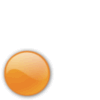 That could bring to a close a case that has made public a flood of internal Microsoft e-mails, providing a rare and often unflattering look at the company's internal debate as it set hardware requirements for Vista and planned how to market the operating system.
That could bring to a close a case that has made public a flood of internal Microsoft e-mails, providing a rare and often unflattering look at the company's internal debate as it set hardware requirements for Vista and planned how to market the operating system.The company was in a bind because as Vista approached launch in 2006, many computers on the market could not run the premium version of the operating system.
In a bid to maintain demand for this soon-to-be obsolete hardware and the Windows XP operating system that it used, Microsoft allowed PC makers to label these machines "Vista Capable," even though they could only run Vista Home Basic, which lacks features such as the Aero user interface.
The plaintiffs allege this was deceptive and violated the Washington Consumer Protection Act, among other claims.
In certifying the case as a class action nearly a year ago, U.S. District Court Judge Marsha Pechman said the plaintiffs had to show the marketing program caused them to pay more for PCs only capable of running Vista Home Basic than they would have absent the Vista Capable campaign.
Pechman ruled that evidence submitted in support of the "price-inflation theory" was based on assumptions and anecdotes and that plaintiffs failed to separate any impact the marketing program had on PC prices from other factors such as holiday sales.
"Absent evidence of class-wide price inflation, plaintiffs cannot demonstrate that common questions predominate over individual considerations," she wrote.
But she declined to issue a summary judgment in Microsoft's favor. The plaintiffs do not have to prove their price-inflation theory if they pursue their claims as individuals, she ruled.
"We're pleased that the court granted our motion to decertify the class, leaving only the claims of six individuals," Microsoft spokesman David Bowermaster said in an e-mail."We look forward to presenting our case to the jury, should the plaintiffs elect to pursue their individual claims."
Attorney Jeffery Thomas said the plaintiffs are still reviewing the ruling and their options.
Microsoft now has its sights set on Vista's successor, Windows 7, which is due out within 11 months though many expect it sooner.
It's unclear whether the company will attempt a similar marketing program to maintain demand for Vista, but analyst Matt Rosoff, of Kirkland-based with Directions on Microsoft, thinks it's unlikely. The hardware requirements of Windows 7 are no greater than those of Vista, and the PCs on the market have caught up.
"There's really no need for it because most of the computers today will be able to run Windows 7 Home Premium," Rosoff said.
--------------------------------------------------------
If you like this post please Bookmark it and comment bellow. To recieve new updates and other posts like this please subscribe via RSS or via Email.










0 comments:
Post a Comment